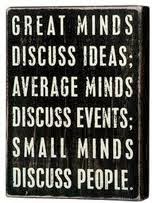There is a very simple way to learn EC and that is to start with questions about ourselves. For eg. you can ask a question to your friend (your English partner) like "What's your name? Where are you from? etc." These questions are also called Bio-data based questions because through them you are trying to find the other person's bio-data based information.
Another method is to ask questions about things around us for eg. When did you buy this table? From where did you buy it etc. This is also an easy way to practice EC and it is very much a useful experience because you are getting real information about a thing or a person.
Next method is to ask questions about something which has happened recently for eg. a family function/ an event in school/college/city etc.
The fourth method is to ask question about somebody known to both the persons who are conversing. It can also be questions about a celebrity.
You can also interact with people by first listening to a good song, reading a newspaper report, watching a video, a TV program or showing a photo album. This is called interaction based method of practising EC.
When there are many people in a group they can be asked to come individually to give a speech on a particular topic (or issue or problem). If they are not very confident they can also come in two's or three's or small teams and make the speech together by first discussing their ideas, ordering them and then expressing them in small sentences. Instead of giving a speech people can also debate the pros and cons of a decision/policy/technological device by diviing themeselves into small groups. A group communication can also be used to find a solution(s) to a social problem in a systematic and disciplined manner.
Another method to pratice EC when there are many people is to present role-plays or dramas in groups based on a theme or issue.
 When alone one can practice EC by reading newspapers, especially "Letters to Editor" where you find the English expressions of common people, not professional writers. You can also send sms to your friends in English and then make a call asking about the sms that you had sent.
When alone one can practice EC by reading newspapers, especially "Letters to Editor" where you find the English expressions of common people, not professional writers. You can also send sms to your friends in English and then make a call asking about the sms that you had sent.
When you are with your friend you can tell him/her to ask questions to you imagining that she is talking to a character from a book/play/movie and you can respond from that character's POV(point of view). In fact this exercise can also be done by pretending that you are somebody else from real life who is known to both of you.
Then you can talk to your friend about something in your life which you are very much passionate about, something you find as a burden, some aspect of your life which you would want to change etc.
You can also imagine that your friend is going to write his/her autobiography and and you are asking questions in order to unravel interesting moments from the reader's POV(Point of View)
You can ask your friend questions like:
Whom would like to thank for your good life?
What is the message from your life for the younger generation?
Any one experience which you would want to describe in full detail?
 Have you achieved both - success and happiness in life?
Have you achieved both - success and happiness in life?
Do you think the world is better now or ten/twenty years ago?
Another method is to share five words with your friend and talk to each other using these words so that you practise their usage thoroughly.
TO BE CONTINUED...












